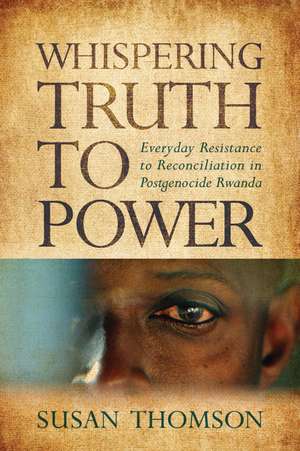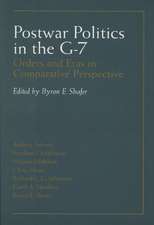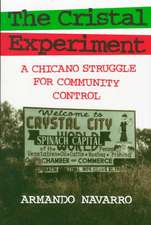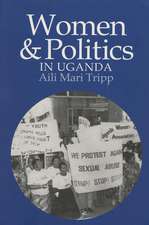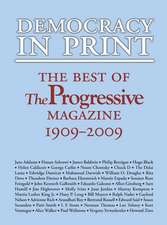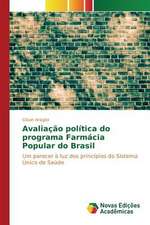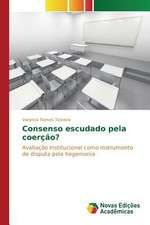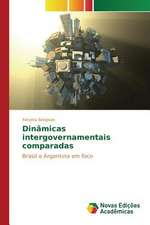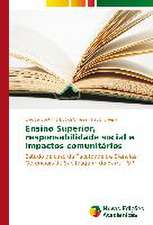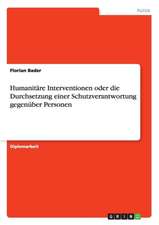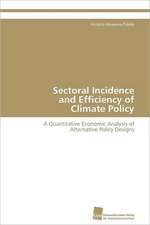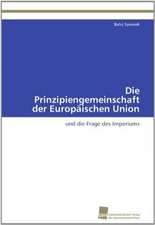Whispering Truth to Power: Everyday Resistance to Reconciliation in Postgenocide Rwanda: Africa and the Diaspora: History, Politics, Culture
Autor Susan Thomsonen Limba Engleză Paperback – 25 noi 2013
Susan Thomson finds that many of Rwanda's poorest citizens distrust the local officials charged with implementing the state program and believe that it ignores the deepest problems of the countryside: lack of land, jobs, and a voice in policies that affect lives and livelihoods. Based on interviews with dozens of Rwandan peasants and government officials, this book reveals how the nation's disenfranchised poor have been engaging in everyday resistance, cautiously and carefully—"whispering" their truth to the powers that be. This quiet opposition, Thomson argues, suggests that some of the nation's most celebrated postgenocide policies have failed to garner the grassroots support needed to sustain peace.
“Reveals the lengths [to which] the current government has gone to restructure all spaces of Rwandan society, and how Rwandans continue to resist this state interference in their everyday lives.”—Ethnic and Racial Studies
“Thomson’s elegant research is praiseworthy and her arguments are forthright. . . . This important publication will be of great value to scholars of Rwanda and genocide as well as students of reconciliation politics and transitional justice.”—Human Rights Quarterly
“Sobering and disturbing. . . . The peasant peoples’ resistance to official policies of national unity and reconciliation emerged because these national schemes do not reflect the peasants’ own lived realities and experiences of state power, genocide, and day-to-day living within their communities. Instead, these official policies disrupt everyday life and endanger existing networks of mutual support and dependence.”—Canadian Journal of Development Studies
Outstanding Academic Title, Choice Magazine
“Reveals the lengths [to which] the current government has gone to restructure all spaces of Rwandan society, and how Rwandans continue to resist this state interference in their everyday lives.”—Ethnic and Racial Studies
“Thomson’s elegant research is praiseworthy and her arguments are forthright. . . . This important publication will be of great value to scholars of Rwanda and genocide as well as students of reconciliation politics and transitional justice.”—Human Rights Quarterly
“Sobering and disturbing. . . . The peasant peoples’ resistance to official policies of national unity and reconciliation emerged because these national schemes do not reflect the peasants’ own lived realities and experiences of state power, genocide, and day-to-day living within their communities. Instead, these official policies disrupt everyday life and endanger existing networks of mutual support and dependence.”—Canadian Journal of Development Studies
Outstanding Academic Title, Choice Magazine
Din seria Africa and the Diaspora: History, Politics, Culture
-
 Preț: 164.51 lei
Preț: 164.51 lei -
 Preț: 165.36 lei
Preț: 165.36 lei -
 Preț: 507.02 lei
Preț: 507.02 lei -
 Preț: 216.96 lei
Preț: 216.96 lei -
 Preț: 258.96 lei
Preț: 258.96 lei -
 Preț: 172.75 lei
Preț: 172.75 lei -
 Preț: 235.42 lei
Preț: 235.42 lei -
 Preț: 319.98 lei
Preț: 319.98 lei -
 Preț: 427.26 lei
Preț: 427.26 lei -
 Preț: 240.43 lei
Preț: 240.43 lei - 15%
 Preț: 476.95 lei
Preț: 476.95 lei -
 Preț: 149.90 lei
Preț: 149.90 lei - 23%
 Preț: 476.07 lei
Preț: 476.07 lei -
 Preț: 505.08 lei
Preț: 505.08 lei -
 Preț: 539.68 lei
Preț: 539.68 lei -
 Preț: 205.29 lei
Preț: 205.29 lei -
 Preț: 265.45 lei
Preț: 265.45 lei - 23%
 Preț: 534.68 lei
Preț: 534.68 lei - 23%
 Preț: 475.06 lei
Preț: 475.06 lei - 23%
 Preț: 475.06 lei
Preț: 475.06 lei - 23%
 Preț: 471.92 lei
Preț: 471.92 lei - 23%
 Preț: 471.33 lei
Preț: 471.33 lei - 21%
 Preț: 343.29 lei
Preț: 343.29 lei - 19%
 Preț: 440.08 lei
Preț: 440.08 lei - 8%
 Preț: 529.23 lei
Preț: 529.23 lei
Preț: 241.28 lei
Nou
Puncte Express: 362
Preț estimativ în valută:
46.17€ • 48.30$ • 38.35£
46.17€ • 48.30$ • 38.35£
Carte tipărită la comandă
Livrare economică 03-17 aprilie
Preluare comenzi: 021 569.72.76
Specificații
ISBN-13: 9780299296742
ISBN-10: 0299296741
Pagini: 288
Ilustrații: 10 b-w illus., 2 maps, 1 table
Dimensiuni: 152 x 229 x 23 mm
Greutate: 0.41 kg
Ediția:1
Editura: University of Wisconsin Press
Colecția University of Wisconsin Press
Seria Africa and the Diaspora: History, Politics, Culture
ISBN-10: 0299296741
Pagini: 288
Ilustrații: 10 b-w illus., 2 maps, 1 table
Dimensiuni: 152 x 229 x 23 mm
Greutate: 0.41 kg
Ediția:1
Editura: University of Wisconsin Press
Colecția University of Wisconsin Press
Seria Africa and the Diaspora: History, Politics, Culture
Recenzii
"Provides a rich discussion of the contemporary Rwandan context, giving voice to people who are largely excluded from public discussions of Rwanda. A much-needed corrective to the cheery presentation of Rwanda in the popular press."—Timothy Longman, author of Christianity and Genocide in Rwanda
"Thomson makes it possible to get behind the official script of Rwandan national unity and reconciliation in a way that few researchers are able to do."—Catharine Newbury, Smith College
“An important attempt to uncover the attitudes of the rural population to the government’s remodeling of Rwanda.”—Georgina Holmes, Journal of Modern African Studies
“Thomson’s research methods and creative engagement with these issues open new lines of inquiry and should inspire both critical review and emulation. Highly recommended for college, university, and major public library systems and those specializing in politics, international affairs, and African studies.”—J. P. Smaldone, Choice
“This intriguing, sophisticated book probes the subtle ways that Rwanda’s poorest peasants have resisted government policies to promote post-genocide reconciliation.”—Choice
“Thomson shows how Paul Kagame’s version of national reconciliation is designed not merely to forge a united Rwanda but also to control its citizens, shape the country’s history in a self-serving manner, and ensure Kagame’s hold on power.”—Foreign Affairs
“Besides its methodological merits, this book’s strength lies in the rich ethnographic data that allow us to gain insights into peasants’ attitudes beyond the official rhetoric of unity and reconciliation.”—African Affairs
“Analyzes peasants’ everyday resistance strategies to Rwanda’s National Policy of Unity and Reconciliation, shedding light on how state power interacts with everyday life in the politically tense context of postgenocide Rwanda. Through its bottom-up perspective, the book is an important and innovative contribution to the literature on this intensely researched country.”—African Studies Review
Notă biografică
Susan Thomson is assistant professor of peace and conflict studies at Colgate University. She has published articles in African Affairs, African Studies Review, and The Journal of Modern African Studies, and she also serves as the Amnesty International–USA Country Specialist for Rwanda and Burundi.
Cuprins
List of Illustrations
List of Abbreviations
Preface and Acknowledgments: The Story behind the Findings
Introduction: State Power as Lived Experience
1 Bringing in Peasant Rwandans through Life History Interviewing
2 The Historical Role of the State in Everyday Life
3 A Continuum of Violence, 1990–2: Exiles, Refugees, and Returnees
4 Practices of National Unity and Reconciliation
5 Everyday Resistance to National Unity and Reconciliation
6 Everyday Resistance to the Gacaca Process
Conclusion: Explaining Systems of Power through Acts of Everyday Resistance
Appendix I: Dramatis Personae
Appendix II: Socioeconomic Hierarchy in Rwanda
Appendix III: Administrative Units in Rwanda
Glossary
Notes
References
IndexDescriere
For 100 days in 1994, genocide engulfed Rwanda. Since then, many in the international community have praised the country's postgenocide government for its efforts to foster national unity and reconciliation by downplaying ethnic differences and promoting "one Rwanda for all Rwandans." Examining how ordinary rural Rwandans experience and view these policies, Whispering Truth to Power challenges the conventional wisdom on postgenocide Rwanda.
Susan Thomson finds that many of Rwanda's poorest citizens distrust the local officials charged with implementing the state program and believe that it ignores the deepest problems of the countryside: lack of land, jobs, and a voice in policies that affect lives and livelihoods. Based on interviews with dozens of Rwandan peasants and government officials, this book reveals how the nation's disenfranchised poor have been engaging in everyday resistance, cautiously and carefully—"whispering" their truth to the powers that be. This quiet opposition, Thomson argues, suggests that some of the nation's most celebrated postgenocide policies have failed to garner the grassroots support needed to sustain peace.
